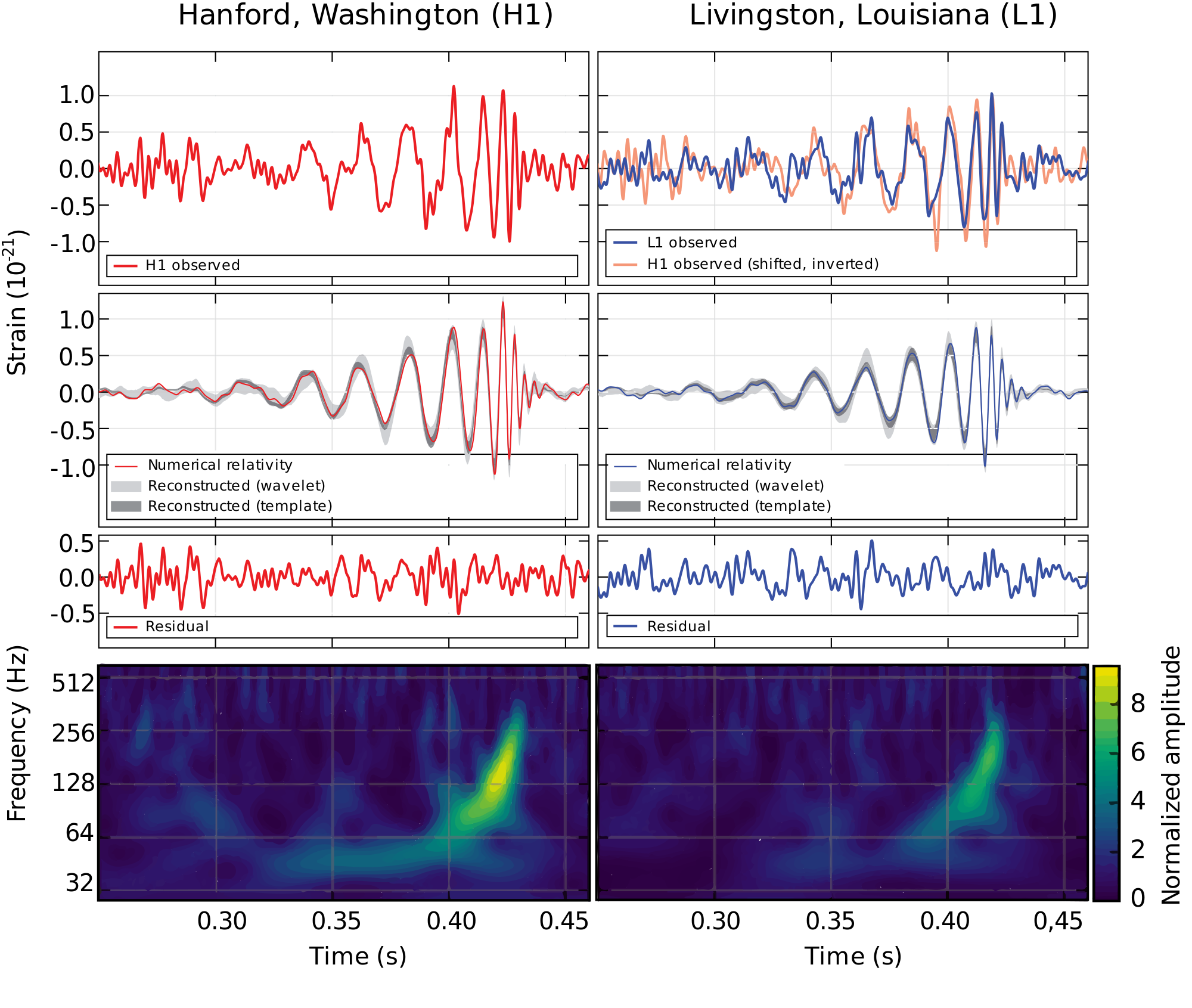How differently will a LIGO detector detect a gravitational wave which came directly to it with a detector which happened to have a black hole between it and the source?
3 Answers
Gravitational waves will scatter off strong gravitational fields. You'd expect that just from the equivalence principle, as Lawrence Crowell states. It's basically like light lensing. You can also have more sophisticated estimates of how much.
The arxiv article from 2008 calculates scattering, absorption and reflection of gravitational waves from black holes, specifically Kerr black holes, and finds interesting relationships between the polarizations and helicities of the gravitational waves, and the black hole rotation and orientations. See https://arxiv.org/abs/0801.3805. It calculates rather exact results. The scattering cross sections and absorption and reflex ion coefficients are calculated. The main dependence, besides the polarization, helicities and relations to the black hole rotation axis and sense, is with respect to the horizon radius over the wave wavelength, and the ratio of angular momentum to mass (I.e., the normalized angular momentum with max of 1). In 2008 gravitational waves had not been directly detected yet, but they did speculate at the end, just a bit, on possible observational consequences, but with no specific gravitational strain numbers plugged into their equations.
It is true that gravitational waves do not interact much with matter directly, but they will be affected, and with larger interferometers we might see some effects. Still, gravitational wave astronomy is probably counting more on what can be observed from detections of objects that can produce a large amount of gravitational radiation, black holes and neutron stars, supermassive black holes accreting matter or compact massive objects, cosmological grav waves, from exploding and collapsing supernova, and others. It is a burgeoning field. The wiki article summarizes many of what they will be looking for. See https://en.m.wikipedia.org/wiki/Gravitational-wave_astronomy
A weak gravitational wave with $\square \hat h_{++}~=~0$ and $\square \hat h_{\times\times}~=~0$ is similar to an electromagnetic wave. We could think of the weak graviton as a sort of "diphoton," so the gravitational wave is similar to an electromagnetic wave with two polarization directions. It is also much more weakly interacting.
The gravitational wave is then a massless wave with a certain mass-energy content and thus will behave in a stationary gravity field as would any other massless field or wave. This is assured by the Einstein equivalence principle(s). This would then mean a gravitational wave would be lensed around a stationary gravity field, such as a black hole or an elliptical galaxy.
It would require more than three LIGO style detectors to measure this. With only three this would not show up. It is possible this could be measured if the source of a gravitational wave is associated with a distant galaxy or quasar in a gravitational lens observed optically.
I hope you get a proper answer from an expert, but just in case you don't, I don't think a black hole would have much effect on gravitational waves.
I say this because I asked a similar question previously and I think it was made clear to me regarding the small amount of scattering involved.
From Black Holes And Gravitational Waves
Due to the weakness of the coupling of gravity to matter, gravitational waves experience very little absorption or scattering, even as they travel over astronomical distances. In particular, gravitational waves are expected to be unaffected by the opacity of the very early universe before space became "transparent"; observations based upon light, radio waves, and other electromagnetic radiation further back into time is limited or unavailable. Therefore, gravitational waves are expected to have the potential to open a new means of observation to the very early universe.
From Scattering of Gravitional Waves
In principle they can undergo scattering off of massive objects just like electro-magnetic waves scatter off of charged particles. Unfortunately, the effect is very, very, very weak. It is difficult enough just to see two black holes collide and merge. Any fine details such as scattering are undetectable with current, and probably future detectors.
-
1$\begingroup$ No.....look at the strain figures on the left hand vertical axis of the graphs above, a figure of $10^{-21} $ is extremely weak, we had to wait until 2 black holes merged even to give us that tiny amount of distortion. Google the penrose process, that is one way of extracting energy directly from the black hole. $\endgroup$– user108787Commented Aug 30, 2016 at 22:23

